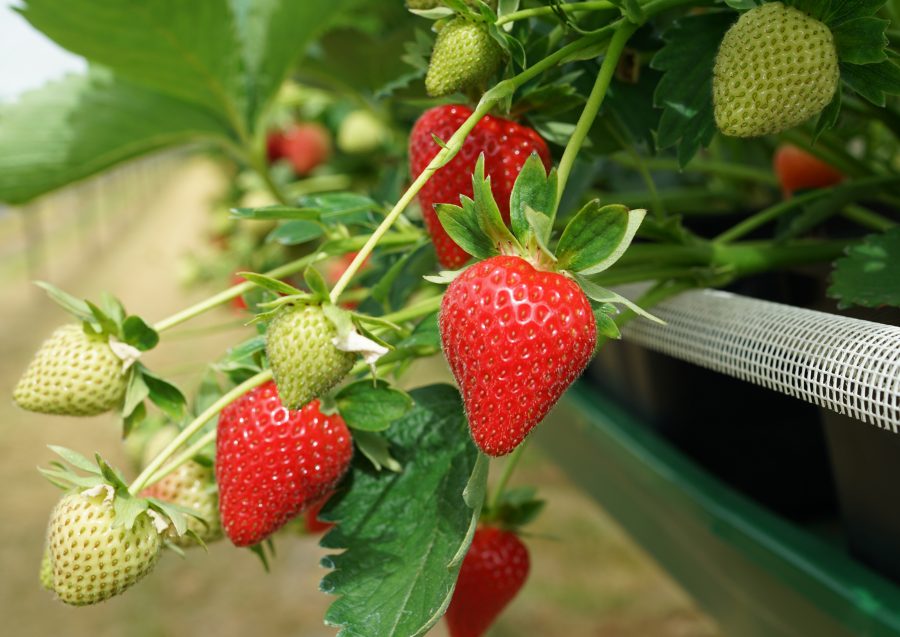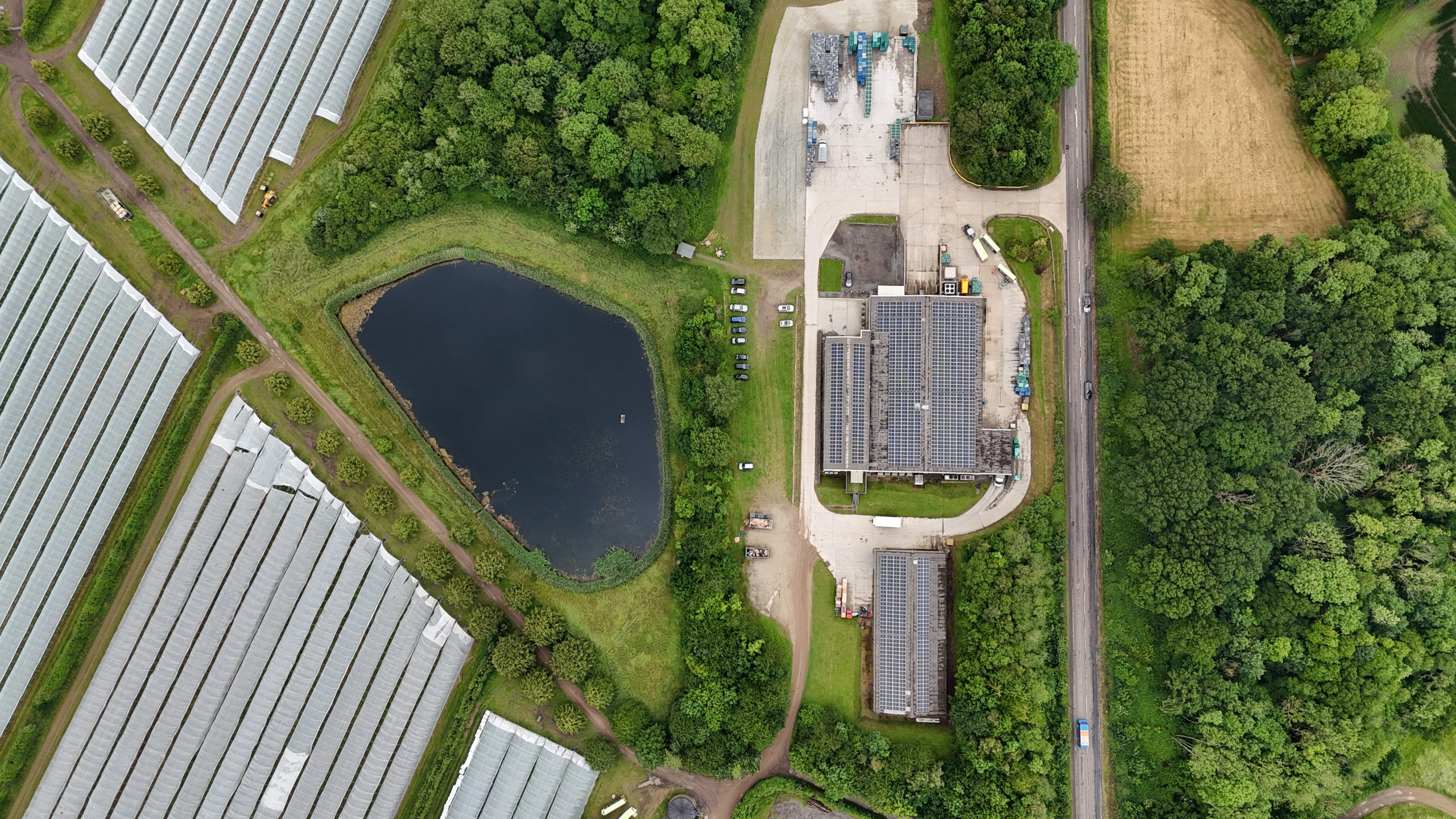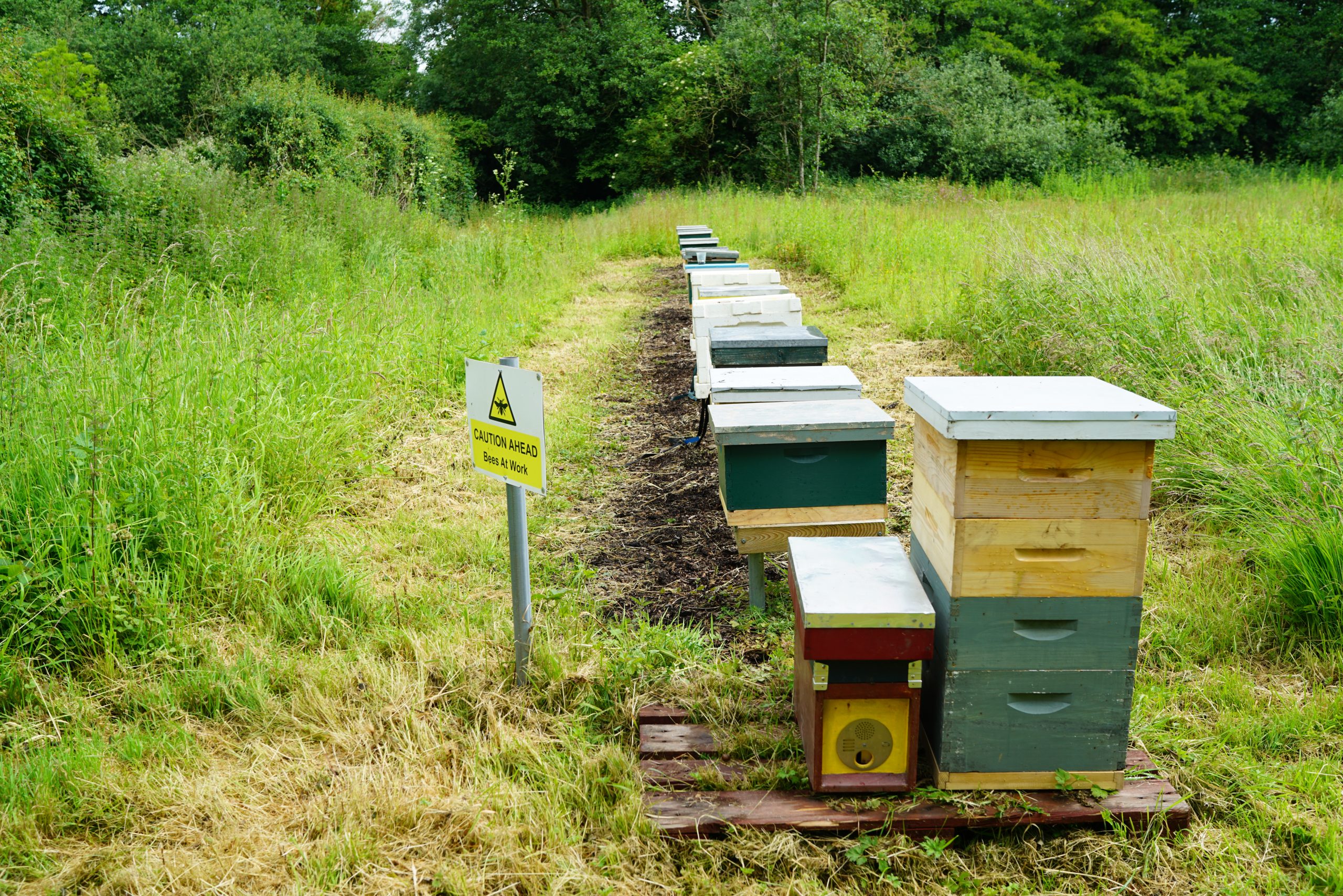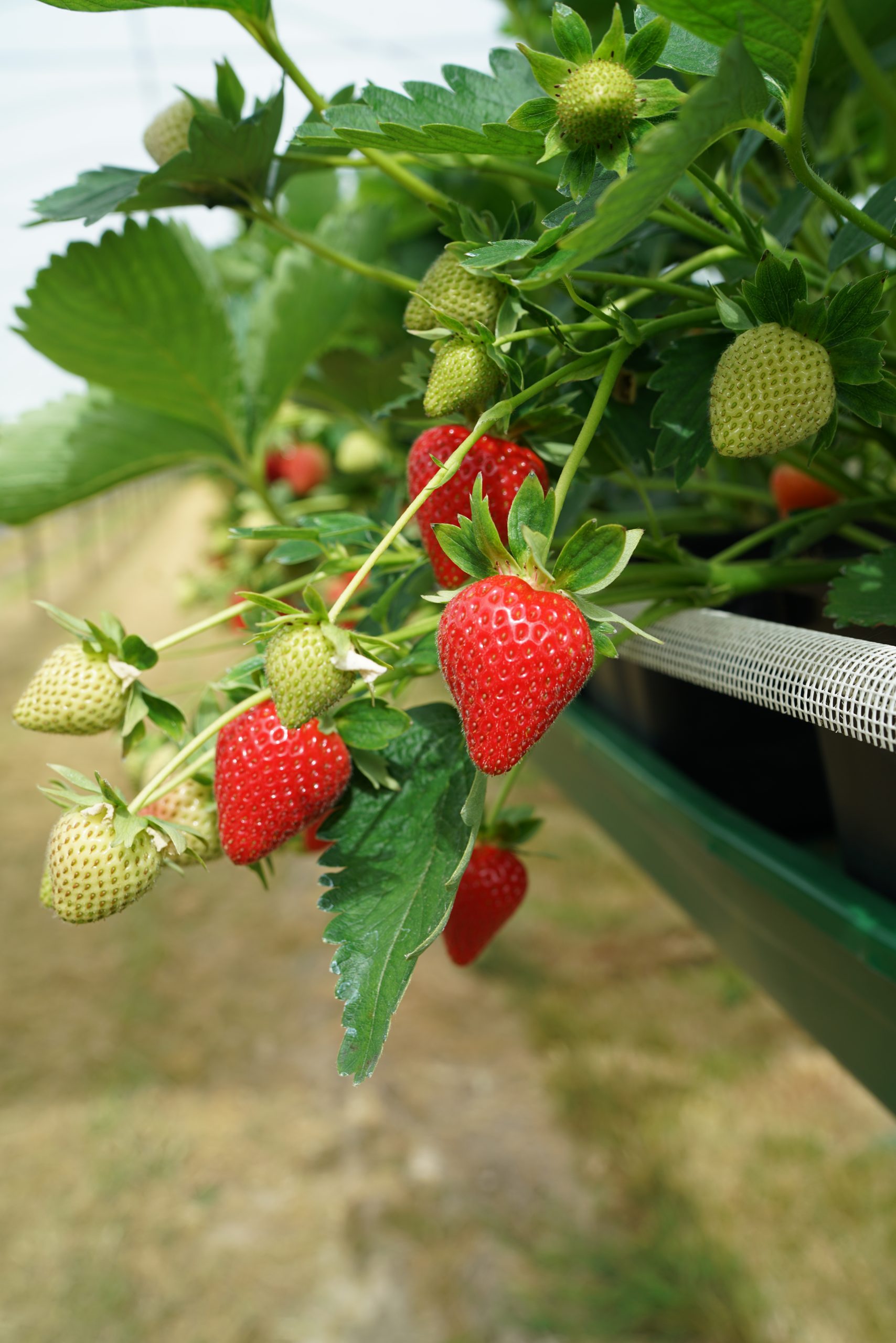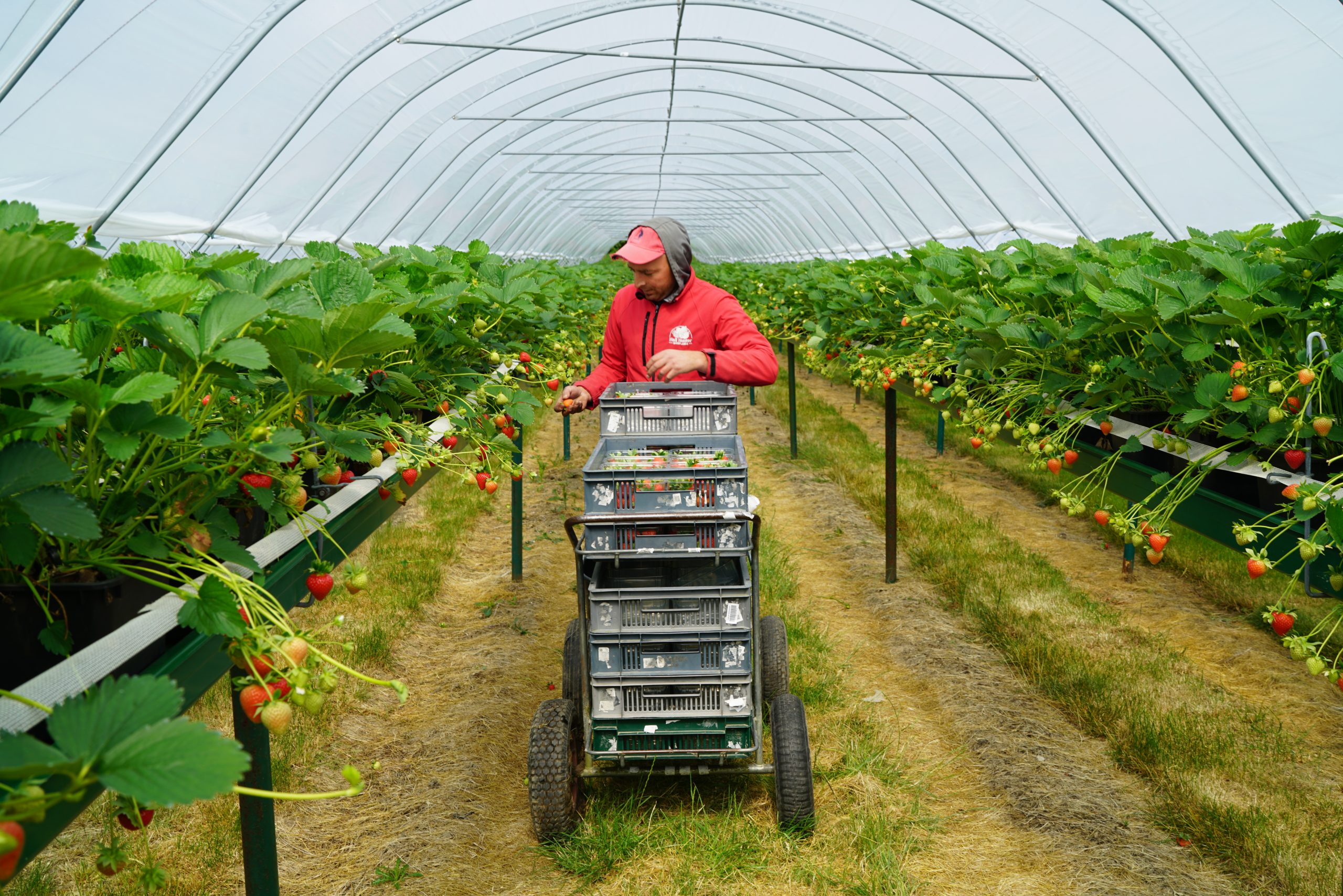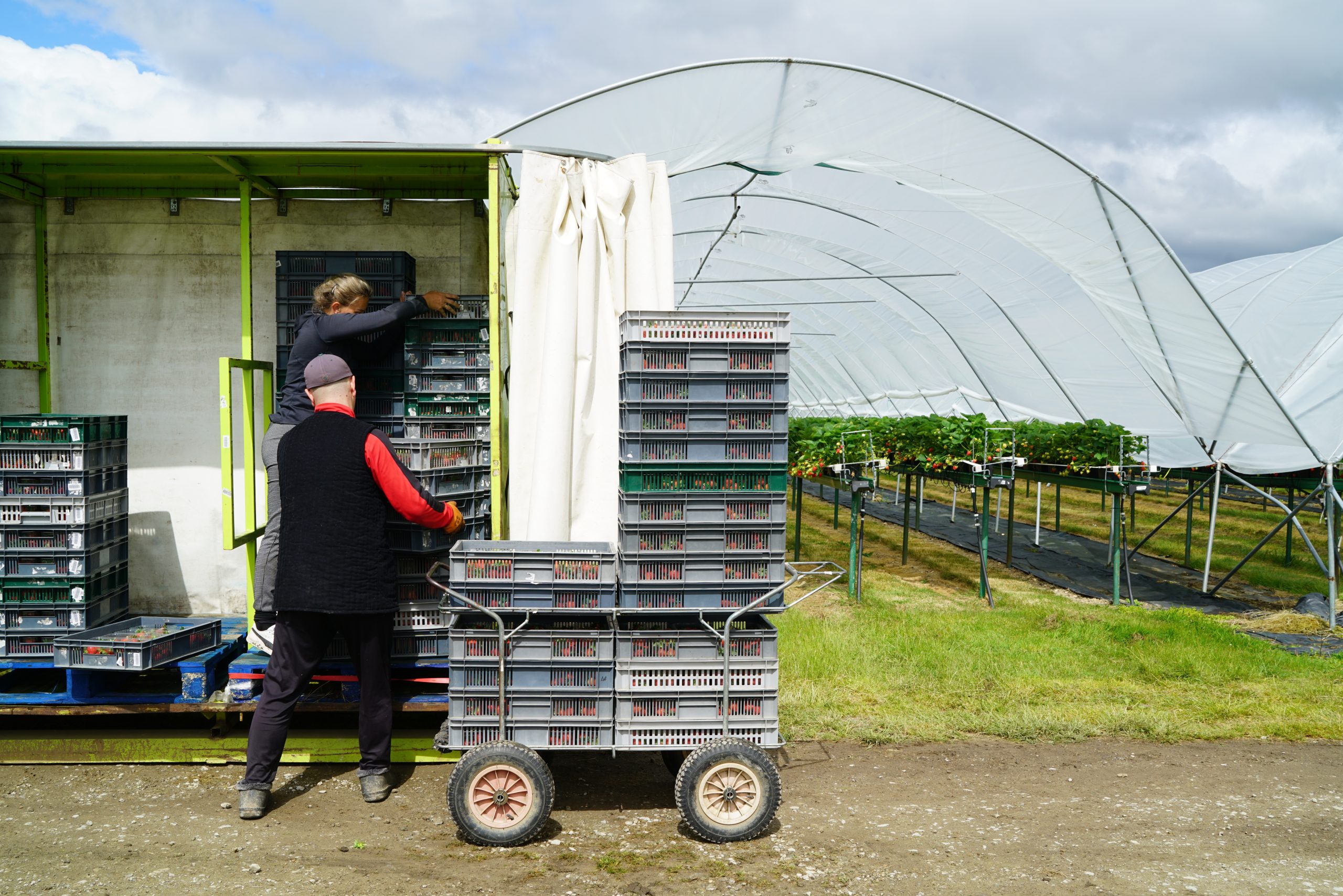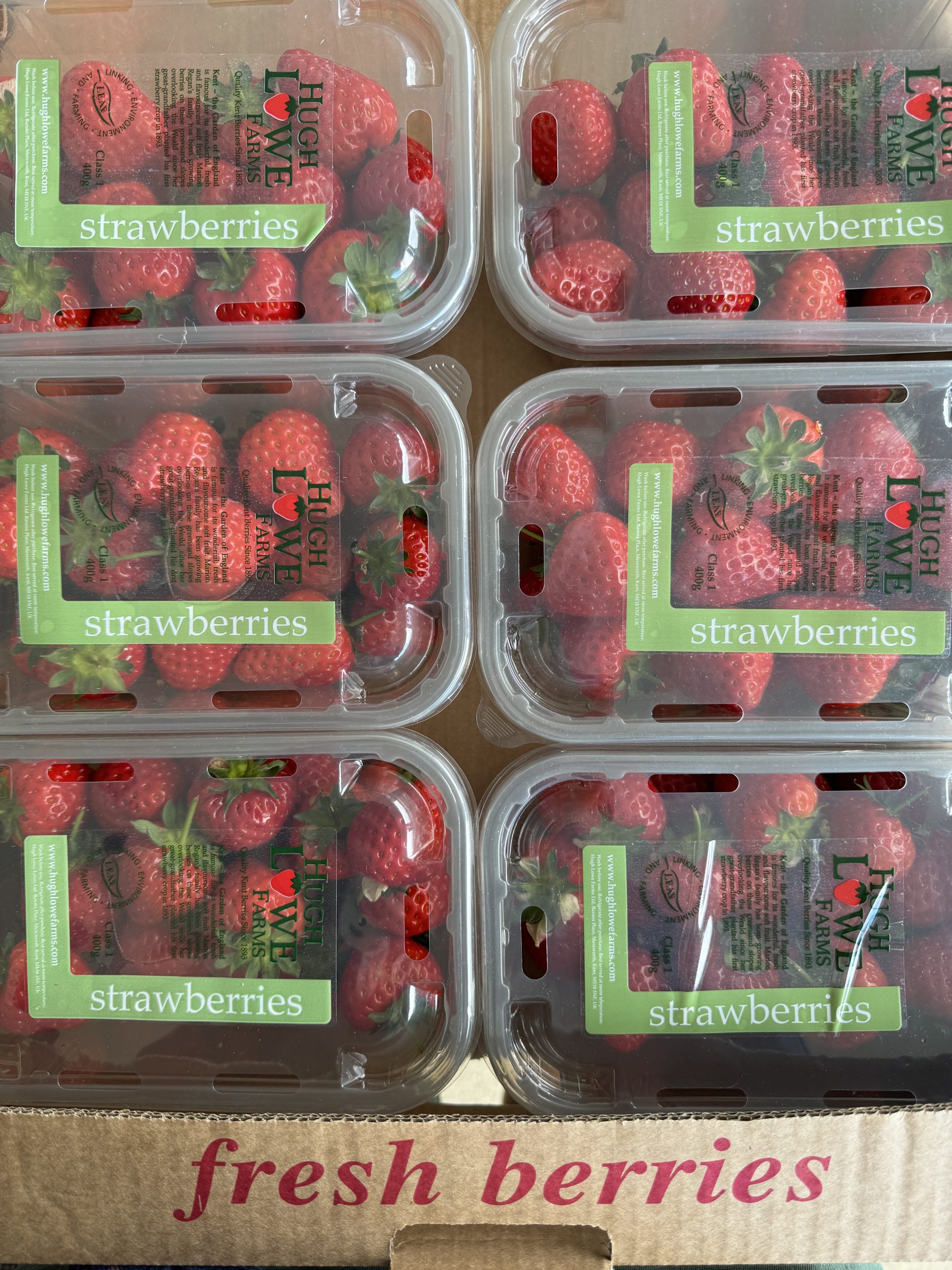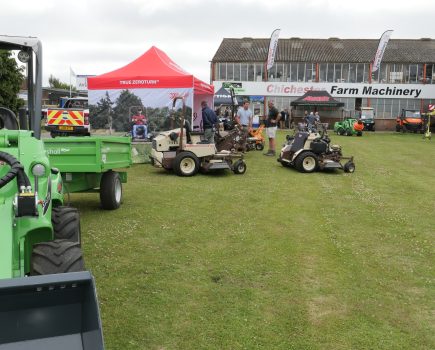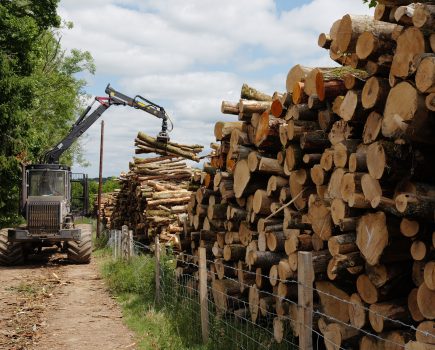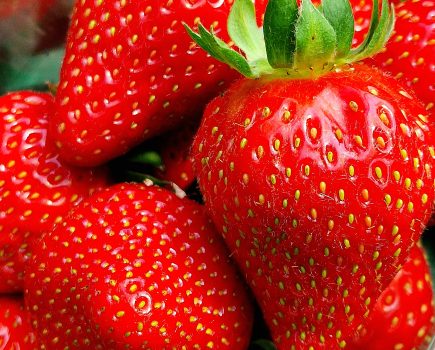This month Nigel Akehurst visits Hugh Lowe Farms Ltd, located just outside Mereworth in Kent, to meet fifth generation owner and managing director Marion Regan who, together with her husband Jon and daughter Amelia McLean, run one of the largest soft fruit businesses in the UK. They farm 750 hectares, producing around 5,000 tonnes of strawberries and 1,000 tonnes of raspberries and blackberries each year under tunnels and glass on about a third of their land, with the remaining two thirds split between arable and space for nature.
Arriving at Hugh Lowe Farms just off the B2016, I park up opposite their large packhouse and meet managing director and fifth generation grower Marion Regan outside their training facility.
She invites me in to the hallway and I notice a large group of fruit pickers in the next room all watching a health and safety video. After signing in and grabbing a coffee, we head into their boardroom, where she introduces me to her husband Jon Regan, who helps run Hugh Lowe Farms and their other three businesses.
These include three companies and one partnership, explained Marion. Hugh Lowe Farms grows soft fruit, L J Betts grows salad, Blaise Plants Ltd grows propagating soft fruit plants and the Regan Partnership is responsible for all their arable crops.
Across the three companies they employ over 1,000 members of staff, with just shy of 100 permanent employees, who live locally, and around 900 seasonal staff, all of whom live on site.
Hugh Lowe Farms and a passion for growing quality fruit
Marion can trace the roots of the soft fruit picking business back to 1893, when her great grandfather Bernard Champion started growing fruit on the farm to supply their family stand in Covent Garden Market.
He began specialising in strawberries before the first world war and continued until Marion’s late father, Hugh Lowe, took over the business after the second world war. Marion grew up on the farm, and after studying Botany at Oxford she worked as an environmentalist for a number of years before joining the family business and taking over from her father in the 1990s.
“It’s surprising how commercial one can get when you realise what you want to do. You need money to do things,” she remarked.
More recently, Jon and Marion’s daughter, Amelia McLean, has joined the business after spending eight years in the city as a lawyer. She is the commercial director and handles all the legal and financial issues.
Over the years the business has evolved to become one of the largest fruit farms growing berries in the country, but to Marion it still has “that feeling of a family farm”.
Soft fruit production accounts for around a third of their 750 hectares, with a patchwork of polytunnels and glasshouses situated amongst arable fields, permanent pasture, woodland, buffer strips and cover crops.
This land-sharing approach provides a diversity of habitats to ensure healthy populations of insects and pollinators that play such a vital role in the pollination of their fruit crops.
The vast majority of the fruit is harvested by hand and taken to the packhouse where it is chilled, checked for quality and packed. Customers include the multiple retailers, door sales, wholesalers, farm shops and restaurants.
Hugh Lowe Farms has also been lucky enough to supply Wimbledon for a number of years, which Marion described as a great privilege but also quite daunting, as people come from all over the world and remember the strawberries they eat.
Putting something better in front of customers year after year has been a key driver of growth for Hugh Lowe Farms, but after several years of rising costs and flat prices, she worries for the future of their sector.
“Variety and flavour are very important but so is having enough margin in it for the growers so that they can keep innovating and keep investing in their farms,” she said.
Ultimately she doesn’t want to let down a whole new generation of the strawberry-eating public in a race to the bottom, and she remained hopeful this year might see some sensible adjustments and recognition back to the grower.
Berry varieties
Hugh Lowe Farms markets its soft fruit to the multiple retailers through an exclusive arrangement with Driscoll’s, a soft fruit breeder based in California.
Strawberry varieties grown on the farm include Malling Centenary and Driscoll’s Katrina, Jubilee, Beatrice and Zara.
Driscoll’s Zara is one of their top tier strawberries and consumers will pay a premium for them, but Marion has a passionate belief that even their standard strawberry should taste amazing, as that’s mostly what people are buying for their children’s tea.
Labour challenges
The biggest challenge facing UK horticulture is labour, said Marion.
“When adding up the current minimum wage and additional costs like National Insurance, holiday pay, pension contributions and the apprenticeship levy, there is not a single person on the farm who costs less than £20 per hour,” she said.
This high cost floor makes it challenging to incentivise piece rate picking meaningfully. Nonetheless the best pickers, who harvest upwards of 40kg per hour, earn more than £700 per week according to the website at www.hughlowefarms.com
A new, or less able, picker might harvest between eight and 10kg/h, explained Marion. Under the current seasonal labour visa rules, pickers are allowed to come and work for six months, after which they return to their homes. They are then only allowed to return for one more season.
She called the current rules “bonkers”, arguing that the sector needed more flexibility.
“If you want a well-controlled, non-exploitative scheme, then it makes sense to have a large percentage of people who are coming back a second or third time because they can show the ropes to the new entrants,” she explained.
Marion also argued for an extension to the six-month term, which she said isn’t long enough as businesses are now picking for nine months of the year.
Commercial robotics trials and other automation
In the past few years, Hugh Lowe Farms has been trialing a fleet of 40 robot strawberry harvesters supplied by Cambridge-based Dogtooth Technologies.
I asked Marion whether she thought they could replace human pickers.
“The thing about people picking is that you have some really good people, and I can’t see robotic pickers touching them for efficiency, but you have a long tail of people who are not so able. So, for the first time, we can really see the robots covering that tail, so they will definitely be integrated into the farm,” she replied.
Marion also highlighted the advantages of being able to operate through the night and the ability of the robots to gather data that can be used to predict future yields and potentially help customers run promotions due to gluts.
Although they weren’t in operation on the day of my visit, I did watch a BBC News feature filmed late in the season last year. It showed the robots picking strawberries using a motorised arm, with sensors and cameras that detect the ripest and best fruit.
The arm places the fruit in an inspection chamber where it is checked for any defects before being placed in a punnet or discarded. The whole process is completely automated, and a human only intervenes if there are any safety issues or the robots need to go back for storage.
Automating other processes
In addition to robotics, Marion said there are still many boring but important standard mechanisations they can do, processes such as crop clearance, planting and crop management involving more efficient application of fertilisers, sprays and irrigation.
“There’s a lot that can be done to reduce the manual input in the game,” she commented.
Net Zero by 2035
Improving efficiencies is also a key tenet of Hugh Lowe Farm’s drive to be ‘net zero’ for carbon by 2035. It was one of the first farms and horticultural businesses in the UK to set a science-based target as a verifiable route towards achieving that ambition, explained Marion proudly.
“We did a lot of work baselining and establishing our soil organic matter in 2020,” she said.
The plan largely involves switching to renewables and to electric vehicles, which will happen more towards the end of the term, she said, adding that they are beginning to see some useful kit out there.
Any emissions they can’t reduce will be eliminated through carbon sequestration in soils and biomass. Another major plank in their strategy is to increase efficiencies across the business; improving output from every input, such as fertilisers, the substrate used for soft fruit, labour and water, all of which require energy.
Farm tour
Heading out for a quick tour of the farm, we drove up to the top of the farm to get a good view looking out across the patchwork of polytunnels across the valley.
Next we stopped at one of the tunnels to see some of the flexible solar panels supplied by Polysolar Ltd as part of a grant-funded agrivoltaics project run by the University of Greenwich. “The panels generate enough energy to power all our automated processes, with a bit left over to feed into the grid,” explained Marion. They are also easy to move around and cluster together to provide more shading for crops in the height of summer.
As well as harvesting energy from the sun, they also use some of their tunnels to collect rainwater, helping keep their reservoirs and other water bodies topped up across the farm.
Back in the car Marion pointed out a number of wildflower strips planted alongside tunnels to attract pollinators, providing nectar for the 100 beehives located onsite.
We then came across a group of school children walking along a farm track flanked by tunnels either side. Marion stopped to see if they had any questions, but the adult supervisors weren’t at all interested.
“You’d think they might like to know what’s happening in these tunnels,” she remarked.
Marion is passionate about educating the public about farming. The business works closely with the local primary school and has active social media channels (both Hugh Lowe Farms and L J Betts have Instagram and Facebook pages).
Farming in a densely populated area can also be a challenge, she highlighted, with increasing ‘people pressure’. As a result the company takes its public rights of way seriously.
“We make sure legitimate users are welcome, but we do everything we can to stop non-legitimate users, including using bales to block entrances that could be used by quad bikes,” Marion said.
Arriving at our destination, Marion introduced me to a team of strawberry pickers busy in the wide polytunnels. After getting the thumbs up to take a few photos, I followed one of the skilled pickers in action as he picked the ripest looking strawberries from the table top rows and carefully placed them into punnets on a trolley in front of him. Once fully loaded, the boxes of punnets were put onto trailers ready to be taken back to the packhouse.
Government policy and future plans
With my tour complete, we headed back to the packhouse ourselves. In the car I asked Marion what she made of natural capital markets and the Government’s farm policy.
“It might be old fashioned, but we’re trying to grow food from our farms. Apart from some Sustainable Farming Incentive payments, we don’t have any alternative income streams,” she replied.
On government policy, she thinks they are neglecting the day job, which is growing food and specialist horticultural crops on our existing farms.
On funding, she welcomes the support to encourage innovation, something both Hugh Lowe Farms and L J Betts are looking to access. She commented that a lot of the money was going to support quite radical projects that will take some time to come to fruition – and may never do so – such as vertical farming.
As for their own plans, Marion was optimistic about the future. She wants to continue to grow the business by farming efficiently, responsibly and sustainably into the next generation and beyond.
Farm facts
- Farm around 750 hectares in total, mainly in Kent
- Produce 5,000 tonnes of strawberries, 1,000 tonnes of raspberries and 1,000 tonnes of blackberries annually
- Majority of fruit produced goes to multiple retailers as well as door sales, wholesalers, farm shops and restaurants
- Have supplied Wimbledon and other major sporting events for many years
- Acquired neighbouring salad producer L J Betts in July 2023 (grow lettuce, whole head lettuce and baby leaf)
- Moving to an SFI agreement from Countryside Stewardship
- Produce wheat, barley and beans in a classic arable rotation using regenerative approach. Also grow oilseed rape and cover crops
- Employ over 1,000 seasonal staff, including around 100 full-time people
- Transitioning to more sustainable practices and reducing emissions through soil carbon sequestration and increased efficiencies
- Focus on food production but also manage land for wildlife through hedges, wildflower meadows, woodland and water bodies, which helps support pollinators and beneficial insects
- Practice integrated pest management across the whole holding
- Separate propagation company called Blaize Plants
- Growing 10 hectares of vines to supply Chapel Down Wines
- Varieties of strawberries include Driscoll’s Katrina, Malling Centenary, Driscoll’s Zara and Driscoll’s Jubilee
- Varieties of raspberries and blackberries include Driscoll’s Maravilla and Driscoll’s Victoria respectively
- Hugh Lowe Farms is a founder member of grower cooperative Berry Gardens, through which they have exclusive access to Driscoll’s varieties
- default
- Marion Regan
For more like this, sign up for the FREE South East Farmer e-newsletter here and receive all the latest farming news, reviews and insight straight to your inbox.

